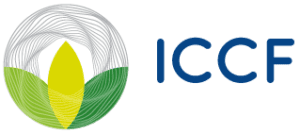
Harmonization of the data requirements and analytical tests for risk assessment:
The guidance documents developed by experts (regulators and feed industry) aim at ensuring the convergence of the requirements for the approval or authorization of feed ingredients globally. They facilitate the development of a risk assessment approach by suppliers of feed ingredients, that will be recognized by risk assessors in certain jurisdictions.

Establish a network of experts:
The ICCF Expert Working Groups are composed of experts from regulatory bodies and the feed industry dealing with specific topics in the development of the guidance documents. This creates a close relationship between regulators and industry which leads to an improved understanding of the needs of the different stakeholders.

Enabling knowledge sharing:
The development of guidance documents is based on the open sharing of knowledge, competences, and experience on scientific matters relevant for the risk assessment of feed ingredients. It also provides insight on the current regulatory approaches in different jurisdictions.

Facilitate Global Trade:
Developing guidance documents recognized across jurisdictions enable potential recognition of a risk assessment approach from one jurisdiction to another, facilitating the approval or authorization of feed ingredients in the jurisdictions. It reduces the need for repetitive testing by feed business operators.

Support the 3R principle (Reduction, Refinement and Replacement) of animal testing:
By converging the technical requirements in the different jurisdictions, the number of tests on animals could be reduced, while still achieving a high level of animal and human safety.

Contribute to food safety:
Developing guidance documents for the risk assessment of feed ingredients through Expert Working Groups representing both the risk assessors and the feed industry supports the development of requirements ensuring the safe use of feed ingredients in the jurisdictions.
